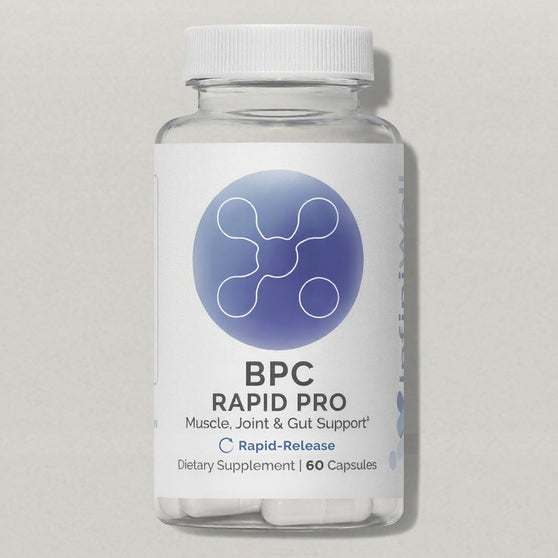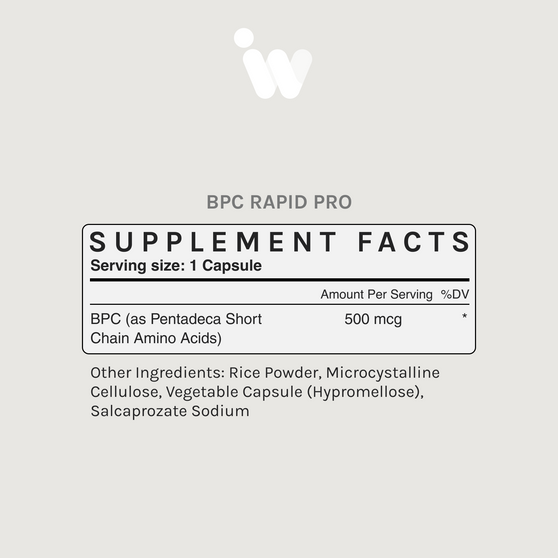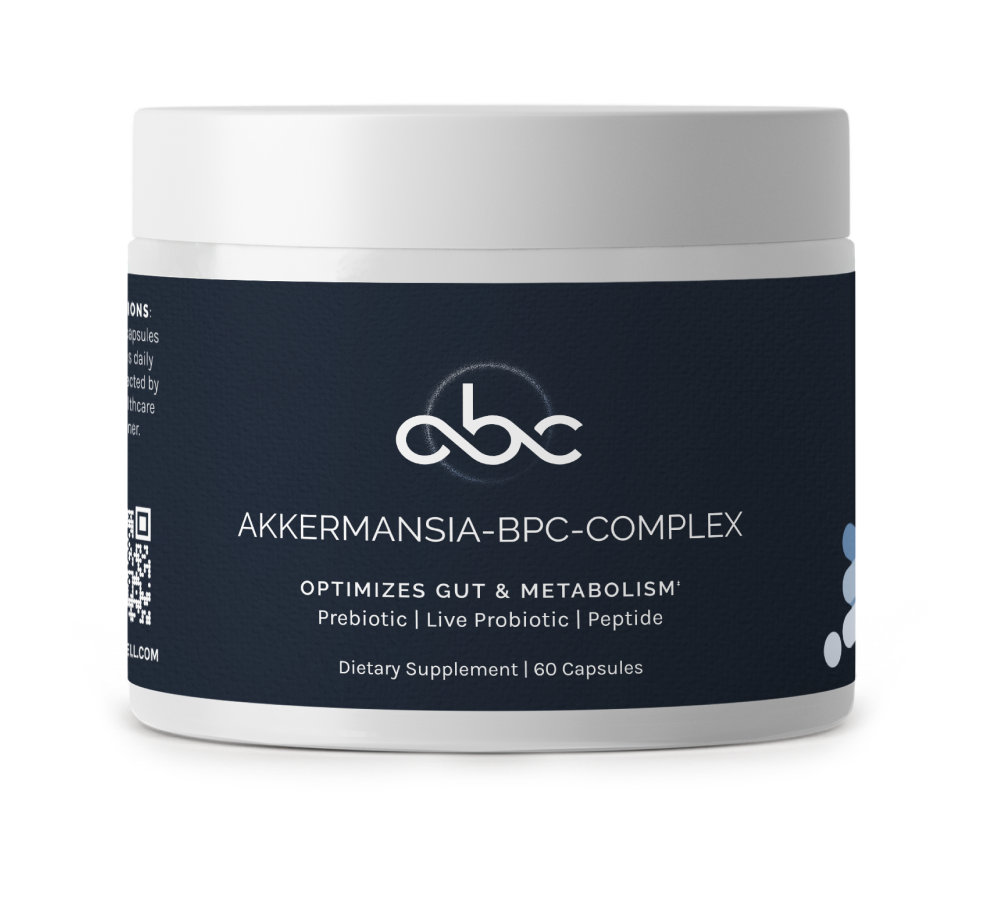Key takeaways
-
Peptides aren't just hype or hazard. For women, especially those exploring wellness options beyond mainstream treatments, certain peptides offer promising—but still emerging—benefits.
-
Peptides for women, such as collagen peptides and food-derived bioactive peptides, are generally considered safe and have been studied for skin, joint, and bone health.
-
Some peptides are being studied for their potential to support women during menopause, though more clinical research is needed to confirm their benefits and how they compare to established treatments.
-
Depending on the formulation, peptide benefits may include support for immune response, skin aging, connective tissues, and metabolic health.
-
Injectable peptides should be used only under clinical supervision. Oral supplements are more accessible but should still be high quality.
-
Used appropriately, peptides can be a useful piece of a broader wellness strategy that includes diet, movement, and quality sleep—not a shortcut or a miracle fix.
There’s a whirlwind of stories casting peptides for women in both hopeful and skeptical lights. From anti-aging enthusiasts at biohacker expos to emerging clinical trials for menopause-related treatments—what’s really going on? And more importantly: should women take notice?
Let’s unpack the buzz.
A culture of curiosity and concern
Peptides are making headlines. Biohackers claim peptides help reverse aging, restore hormonal balance, or even support libido. Meanwhile, traditional researchers point out that many of these claims aren’t backed by large-scale studies. So who should you believe?
The truth, as with many health trends, lies somewhere in the middle. Peptides are biologically active short chains of amino acids that can influence everything from skin health to hormone production. But not all peptides are created equal—or equally researched.
What critics are saying
Alongside the interest, there’s also skepticism. While peptides hold promise, concerns have been raised—particularly around how they’re used and regulated.
Here are a few of the most common points of pushback:
-
Hormone interference: Peptides can mimic natural hormones, which may interfere with hormone levels or create imbalances.
-
Limited safety data: Long-term safety data is lacking for many synthetic peptides, especially those used off-label or without regulation. Some users have also reported adverse reactions ranging from mild skin irritation to hormonal imbalances, particularly with injectable forms.
-
Misuse in fitness: Some peptides used for muscle growth and fat loss have been abused in the fitness world, raising red flags about misuse.
-
Regulatory gray areas: Peptide supplements occupy a gray zone between pharmaceuticals and wellness products, leading to confusion about sourcing and oversight.
-
Overblown claims: Some marketers overpromise benefits, making peptides seem like miracle cures without discussing potential downsides.
There’s some truth to that—but not the whole truth
Yes, synthetic growth hormone-releasing peptides and peptide injections have been misused or sold without proper oversight. But that’s just one side of the conversation. Many peptides used in wellness are naturally occurring, food-derived, or supported by early research for specific benefits.
Peptides like collagen peptides or GHK-Cu, for example, are commonly found in oral supplements and topical creams. They’re used to support skin elasticity, connective tissue health, and even immune function. These differ entirely from the synthetic injections often associated with bodybuilding or hormone clinics.
What’s missing from the conversation
Not all peptides are hormone disruptors or overhyped solutions. Some fall into a more practical category: nutritional tools that may support wellness when used with intention.
-
Collagen peptides: Made from hydrolyzed proteins, these peptides are being studied for their role in maintaining skin elasticity, reducing visible signs of aging, and supporting bone density.
-
Food-derived and naturally occurring peptides: Bioactive peptides found in food or naturally produced by the body may support immune response, tissue integrity, and cardiovascular function.
-
Hormone-supportive peptides: Some peptides are being explored for use during menopause, particularly those that affect growth hormone-releasing pathways linked to energy and metabolic health.
-
Skin and tissue-support peptides: Early-stage research highlights peptides that support blood vessel function (endothelial cell activity), promote the formation of new blood vessels (angiogenesis), and contribute to tissue structure through cellular migration and turnover.
Science says: Not all peptides are equal
Peptides come in many forms, each with distinct functions and potential health benefits. Some are naturally found in food or the body, while others are made synthetically for research or medical use. Understanding these differences is crucial, especially when evaluating peptide supplements for goals like weight loss, immune support, or anti-aging benefits.
Here are a few common categories:
-
Collagen peptides: Popular in skin and joint supplements, these peptides are linked to collagen production and connective tissue support. They're often included in wellness routines focused on skin aging or mobility.
-
Growth hormone-releasing peptides (GHRPs): These may stimulate the pituitary gland to increase growth hormone levels. They're sometimes explored for muscle building, fat metabolism, or hormone balance, but they require medical supervision due to potential side effects.
-
Bioactive peptides: Found in food or produced naturally in the body, these peptides may support muscle mass, immune system function, and other aspects of overall health.
-
Synthetic peptides: Developed in labs for research or clinical use, these are still being studied for their potential benefits in areas like hormone regulation, muscle support, weight management, and more.
-
Antimicrobial peptides: Part of the body’s natural defense system, these peptides help protect against bacteria, viruses, and other pathogens by supporting the skin and immune barrier.
This diversity matters. Peptides for menopause may differ from those targeting muscle growth, hair health, or skin aging. The form, amount, and source of each supplement—whether topical, oral, or injectable—can influence how it’s absorbed and what systems it interacts with.
For example, an oral collagen peptide may support skin structure over time, while a synthetic peptide injection designed for growth hormone release could affect metabolism more directly. Even two peptides with similar names can behave differently depending on how they're delivered.
Reframing the narrative
Peptides shouldn’t be seen as either cure-alls or marketing gimmicks. Some show meaningful potential in supporting women’s health—particularly during midlife, when shifts in skin structure, energy levels, and metabolism become more noticeable.
-
For skin health: As part of an overall skincare routine, collagen peptide supplements and certain signal peptides may support skin tone, hydration, and elasticity.
-
For hormone balance: Certain peptides, such as kisspeptin and gonadorelin, have shown promise in clinical studies for supporting specific aspects of hormonal regulation. However, more research is needed to establish their effectiveness and safety profile compared to traditional hormone therapies.
-
For menopause support: Peptides that influence growth hormone-releasing activity are being explored as complementary tools for managing menopause-related symptoms.
Peptides may also support muscle maintenance, tissue strength, and sleep quality—all of which are relevant for women navigating the physical and hormonal transitions of midlife.
If you’re considering peptide supplements
Not all products are created equal, so it’s important to choose wisely. Here’s what to keep in mind:
-
Stick with oral supplements that list clearly labeled ingredients.
-
Avoid unregulated injectable peptides unless you’re under medical supervision.
-
Look for third-party testing and products backed by published research or clinical studies.
-
Be clear on your goal, whether it’s supporting skin health, immune function, hormone balance, or metabolic wellness.
-
Learn the language. Terms like "growth hormone secretagogues," "chains of amino acids," or "peptide therapy" might indicate scientific value—or just clever marketing.
Peptides and your health: What to remember
Peptides aren’t miracle fixes, but they’re not nonsense, either. For women navigating skin changes, hormonal shifts, or dips in energy and focus, certain peptides may offer thoughtful, targeted support. The best approach is informed, cautious, and aligned with your body’s real needs.
What to read next:
Glossary
Terms to know:
-
Amino acids: The building blocks of proteins and peptides. They support metabolic function, tissue strength, and overall health.
-
Bioactive peptides: Naturally occurring, often food-derived peptides that may support immune health, cardiovascular function, and connective tissue maintenance.
-
Collagen peptides: Hydrolyzed proteins commonly used in supplements and skincare. These support skin elasticity, bone density, and joint function.
-
Endothelial cells: Cells that line blood vessels. Certain peptides may support their activity, which plays a role in cardiovascular health.
-
Growth hormone-releasing peptides (GHRPs): Synthetic peptides that stimulate the pituitary gland to release growth hormone. Studied for their effects on metabolism and muscle support.
-
Growth hormone secretagogues: Compounds, including some peptides, that stimulate the natural release of growth hormone in the body.
-
Hormone replacement therapy (HRT): A conventional approach to menopause symptom relief using synthetic or bioidentical estrogen, progesterone, or both.
-
Hormonal imbalances: Shifts or disruptions in hormone levels, often associated with menopause, perimenopause, or metabolic conditions.
-
Human growth hormone: A hormone produced by the pituitary gland that supports tissue maintenance, body composition, and metabolic activity. Some peptides are designed to influence its release.
-
Insulin sensitivity: The body’s ability to respond effectively to insulin. Some peptides are being researched for their potential impact on metabolic regulation.
-
Menopause treatment: A general term for therapies and supplements aimed at easing menopause symptoms, such as hot flashes, low energy, or skin and muscle changes.
-
Peptides: Short chains of amino acids that act as signaling molecules in the body. Different peptides influence skin health, hormone function, and immune response.
-
Subcutaneous injection: A method of delivering compounds, like synthetic peptides, just beneath the skin. Often used in clinical or research settings.
-
Synthetic peptides: Lab-engineered peptides used in research or clinical practice. These may be studied for their roles in hormone activity, muscle support, weight management, and other wellness applications.
-
SOURCES





















